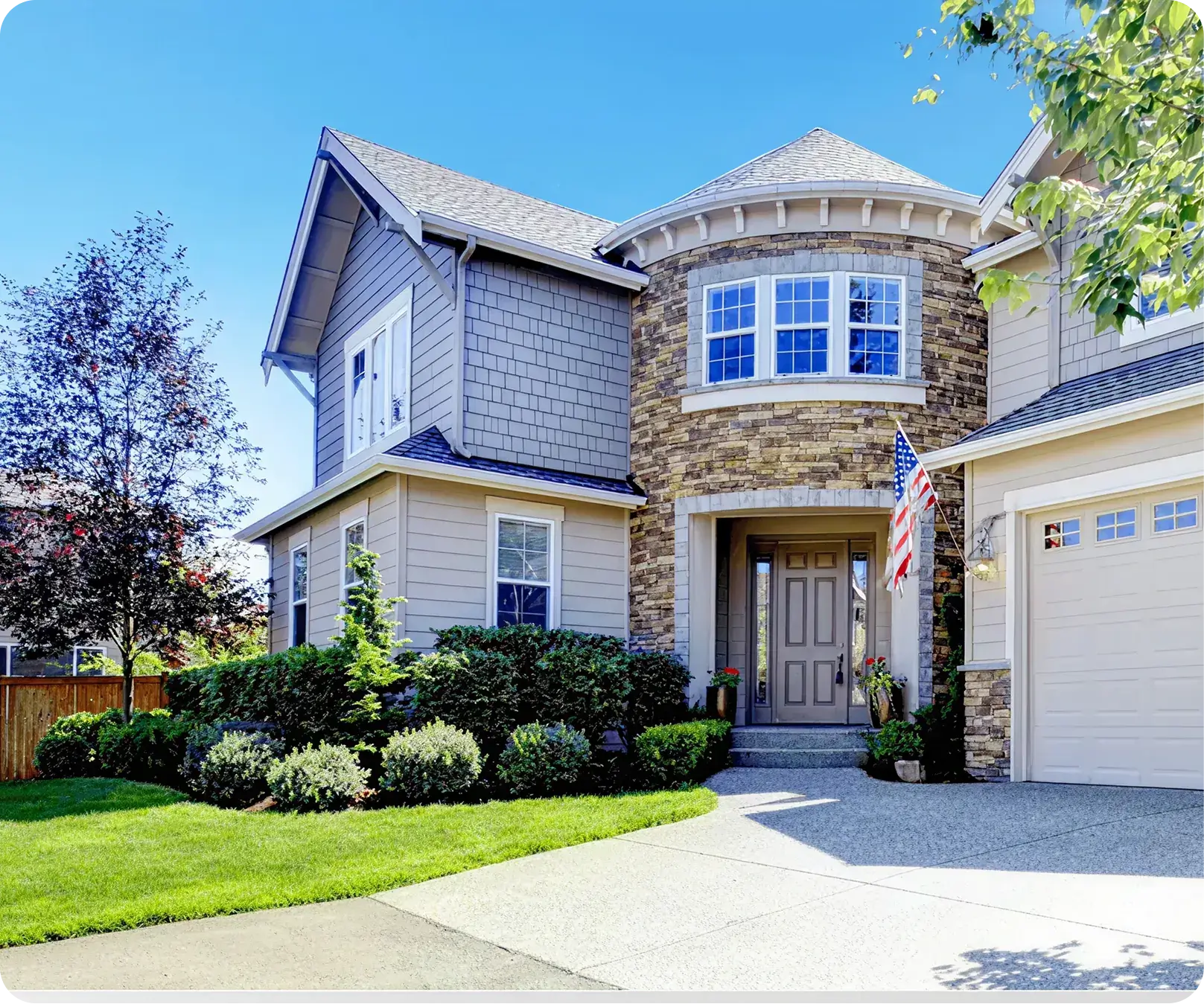

A crucial credential for professionals looking to oversee and manage construction projects in residential and commercial settings, a general contractors license is issued by the Contractors State License Board (CSLB) in California.
A general building contractor is a professional who supervises and coordinates construction projects that involve two or more unrelated trades, ensuring compliance with construction industry standards and regulations of the state.
General building contractors not only coordinate trades but also manage project planning, budgeting, and scheduling and hire subcontractors for specialized works.
DIVISION 3. PROFESSIONS AND VOCATIONS GENERALLY [5000 - 9998.11]
CHAPTER 9. Contractors [7000 - 7191]
ARTICLE 4. Classifications [7055 - 7059.1]
7057. (a) Except as provided in this section, a general building contractor is a contractor whose principal contracting business is in connection with any structure built, being built, or to be built, for the support, shelter, and enclosure of persons, animals, chattels, or movable property of any kind, requiring in its construction the use of at least two unrelated building trades or crafts.
(b) A general building contractor may take a prime contract or a subcontract for a framing or carpentry project, but may not take a prime contract involving other trades unless the contract requires at least two unrelated trades.
(c) No general building contractor shall contract for any project that includes the "C-16" Fire Protection or "C-57" Well Drilling classifications unless properly licensed or subcontracted.
B-General Building vs. B-2 Residential Remodeling
An applicant applying for B-General Building license must have 4 years of journeyman level experience performing or directly supervising framing or rough carpentry AND two (2) unrelated cortrades (e.g., Plumbing, Electrical, HVAC, Roofing, Concrete.)
Framing or Rough Carpentry experience is REQUIRED for the B- General Building classification.
An applicant applying for the B-2 Residential Remodeling license must have 4 years of journeyman level experience performing or directly supervising at least three 3 unrelated trades pertaining to remodeling. For example, experience with floor installation, painting, cabinet installation, tile, and more.
Framing or Rough Carpentry experience is NOT required for the B2 classification.
Getting a B-General Building License is a multistep process, you should treat with attention to become a registered general contractor and benefit from the ability to bid on larger, high-paying projects and access to government and commercial contracts.
1. Determine eligibility requirements
Before you apply for a general building contractor’s license, you must ensure that you meet the basic eligibility criteria.
2. Submit an application
You must submit an application to the California Contractors State License Board (CSLB).
3. Pass required exams
Once your application is approved, you will be scheduled to take the general contractors license exam, which typically consists of a Trade exam and a Business & Law exam. Passing scores typically require at least 70%. That is where enrolling in our contractor licensing prep program will increase your chances of passing the exam on the first attempt by up to 98%.
4. Obtain a surety bond and insurance
Before receiving your license, you should also provide proof of financial security, including:
5. Receive your license for general contractor
When exams are passed, and bonding is proven, you'll be finally issued a General Contractor License in California. After paying a licensing fee of $200 for a sole owner and $350 for a non-sole owner, you’ll get your official license number and certificate.
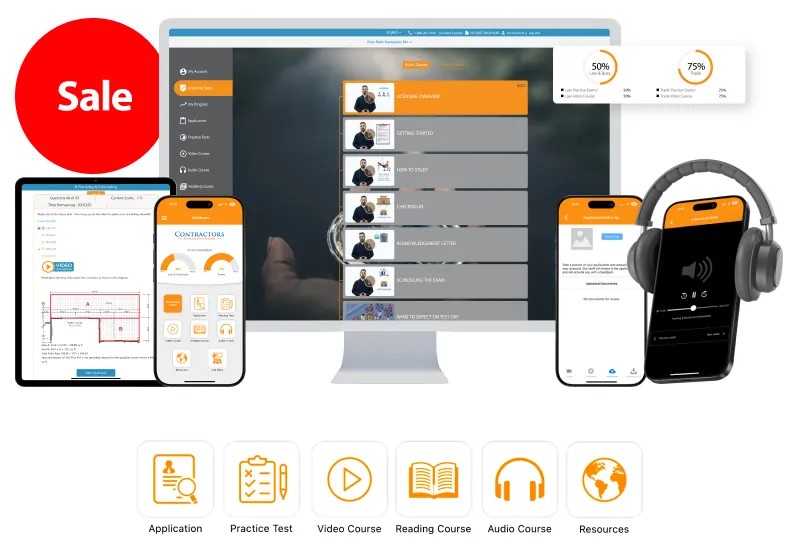
Includes 120-days access to Law & Trade videos, audio, reading, and practice exams
 $495.00
$495.00
Regular Price: $595.00
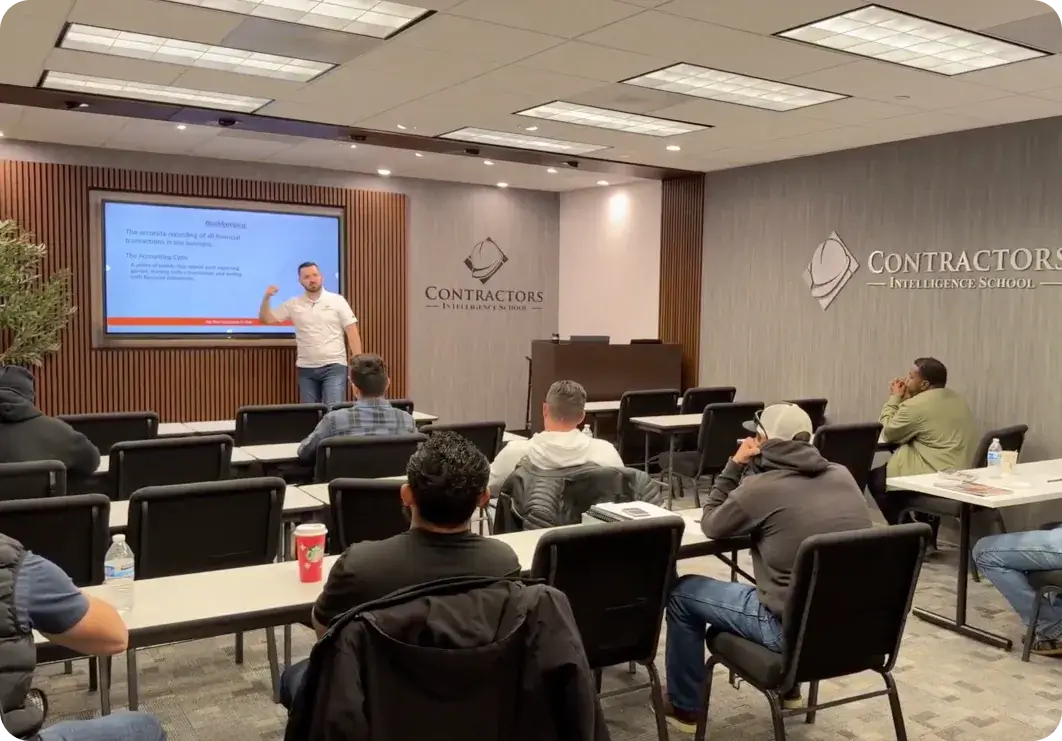
Our live classes are available throughout California. Includes Study Material
 $595.00
$595.00

Comes with a 120-day complimentary access to our online tests
 $295.00
$295.00

 Limited Time Offer | Save $500
Limited Time Offer | Save $500
For Just $1200.00 $695.00
This special offer includes:
 Full Online Course
Full Online Course Live Streaming Classes
Live Streaming Classes We Pay Your 1st Year Contractors License Bond
We Pay Your 1st Year Contractors License Bond
Expires 1/31/2026

We've created a step-by-step guide that walks you through everything you need to know about obtaining your Class B General Building Contractor License in California, from eligibility and application to exam prep, bonding, and compliance. Get clarity on the entire process before you begin.
Read the Full GuideGetting a B-General Building License is a multistep process, you should treat with attention to become a registered general contractor and benefit from the ability to bid on larger, high-paying projects and access to government and commercial contracts.
We provide step-by-step guidance on filling out and submitting a contractor application to avoid mistakes and minimize delays and rejection risks.
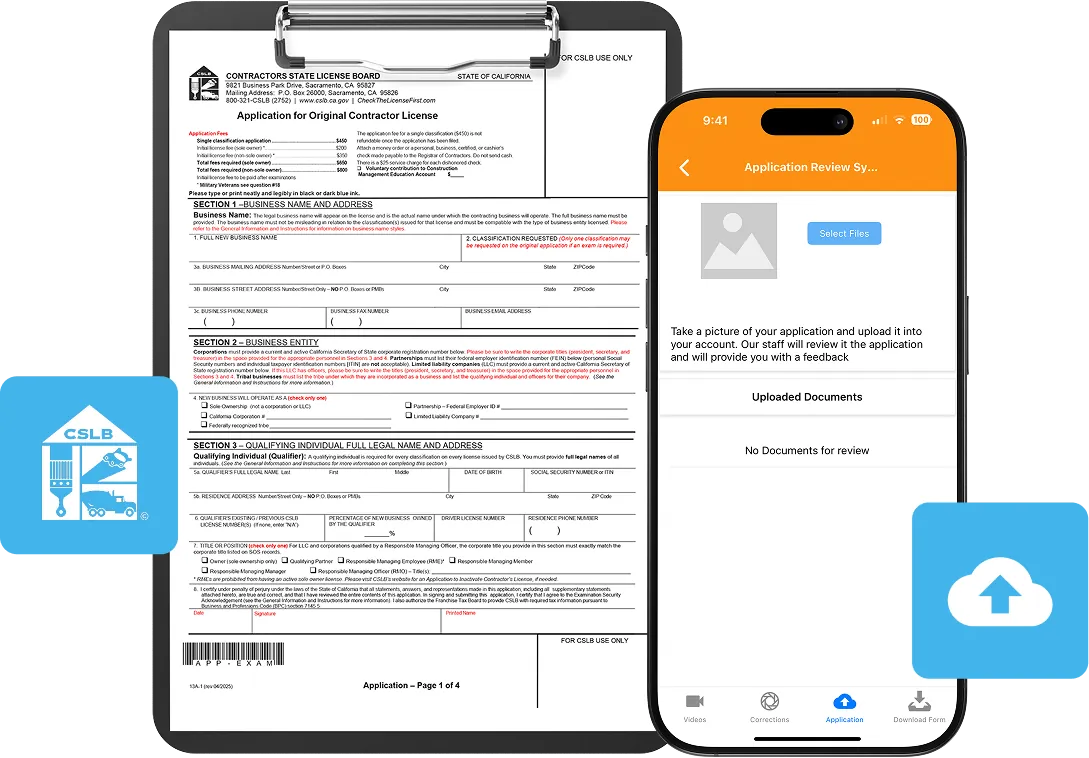
To familiarize yourself with a state testing system, real exam structure, and question formats, you’ll get access to mock tests available online or via our mobile app. They simulate real exam conditions to help you test the waters before state exams.

You’ll get access to comprehensive, well-structured, and illustrated materials covering all related topics for trade and law exams, including study guides, textbooks, online lectures, and live instruction classes, depending on the study option you choose.
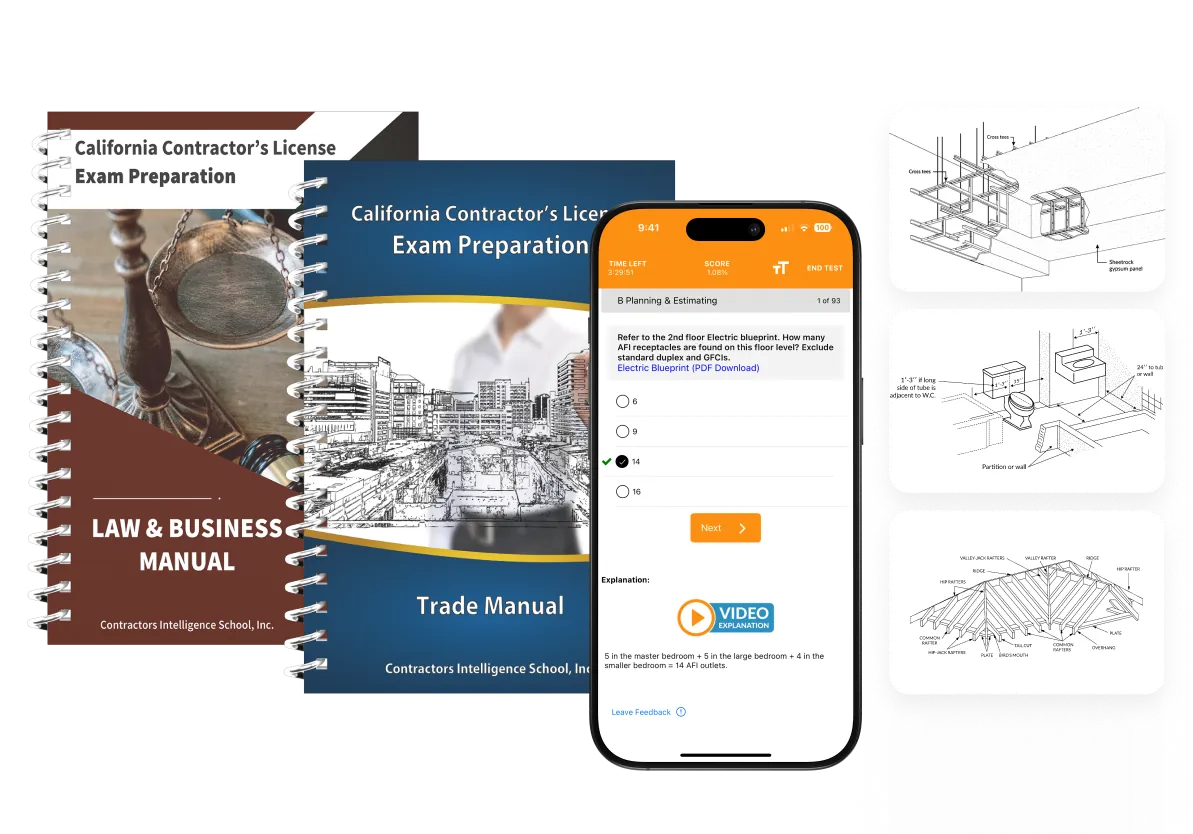
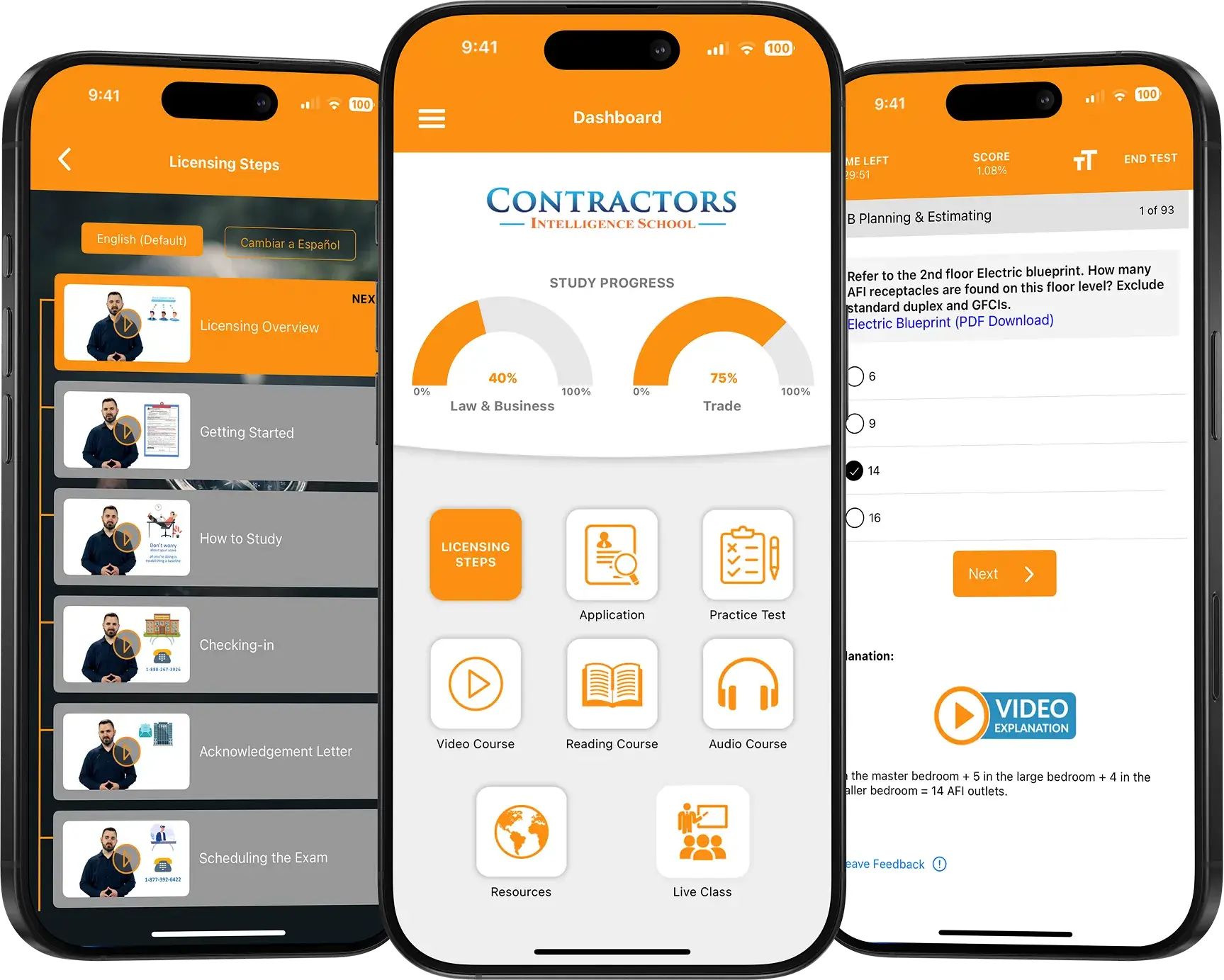
Compatible with over 8,000 devices
When you enroll in any of our courses, you’ll get full access to our powerful mobile learning app, designed to help you study on your schedule. Whether you're on the job site, at home, or on a break, you can study when it's most convenient for you.


I was able to pass my contractor exam with their online program within 6 months. I recommend
— Alex Romo


Great online platform and great customer service when needed.
— Mark Cappelletti


Great platform to study and excellent personal they help me out to the entire process
— Josue Mejia

Our students don’t just study. They pass.With our proven teaching methods, 98% of students pass their exams on the first try. You can feel confident you're investing in a program that truly works and sets you up for success from day one.

Our students don't just study. They pass.With our proven teaching methods, 98% of students pass their exams on the first try. You can feel confident you're investing in a program that truly works and sets you up for success from day one.
To become a registered general contractor in California, you must obtain a general building contractor license by passing the required examinations and securing the necessary documentation.
On average, it takes as little as two months to fully prepare for the exams and obtain your general contractor license when enrolling in a structured licensing preparation program.
The average cost of obtaining a California general contractor license is approximately $850. This includes fees paid directly to the state or the CSLB. Contractors must also maintain a contractor’s bond, which costs about $250 annually, and may choose to enroll in an exam preparation course, which can add up to $600 to the total licensing cost.
Get expert guidance with your CSLB application and exam preparation so you can get licensed quickly and grow your business with confidence.
Prefer to talk it through? Call us and get personalized advice from our friendly support team.
